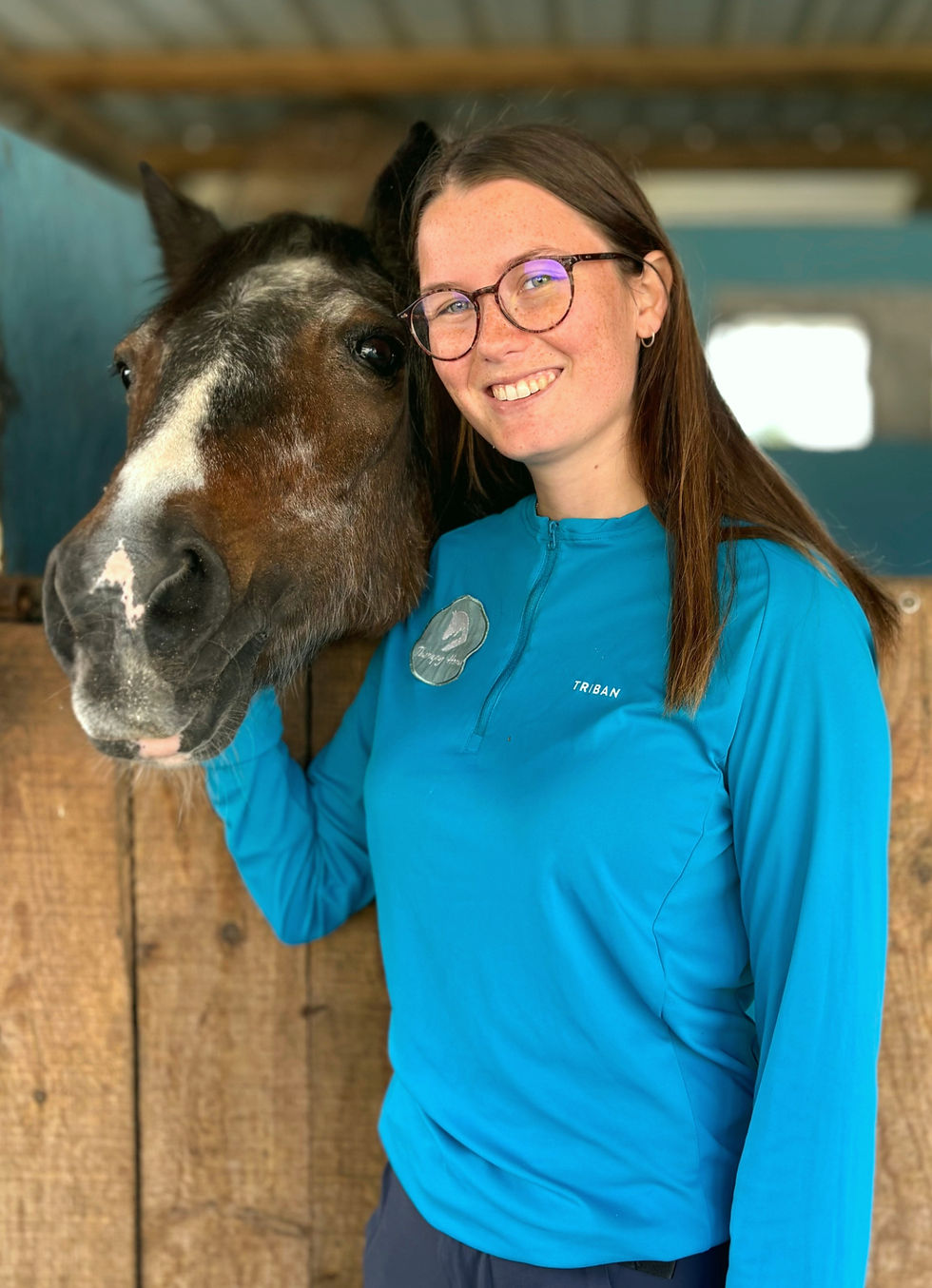


Equine-Assisted Therapy
We focus on physical, social, emotional, and cognitive functioning while adhering to a framework of ethical, competent, and evidence-based practice to facilitate therapeutic outcomes through a multi-disciplinary approach.
The therapeutic power of horses
Horses are incredibly perceptive animals, capable of responding to subtle cues and emotions in humans. Their natural behavior and herd dynamics provide rich metaphors for clients to explore their life experiences. The presence of horses in therapy sessions offers several unique benefits:
Non-Judgemental Reflection
Horses mirror human emotions and behaviours without judgment, allowing clients to gain insight into their feelings.
Building Trust in Relationships
Working with horses helps clients develop trust, improve communication skills, and build healthy relationships.
Emotional Regulation
Interacting with horses can help clients learn to identify and regulate emotions in a safe and supportive environment.
Physical Strength
The physical aspect of working with horses can improve client's physical functioning, motor skills, balance, and spatial awareness.
Using a behaviourally informed approach, our activities support executive functioning, self-awareness, and modification of harmful behaviours.
Our activities support emotional regulation, develop self-confidence, social awareness, self-control, and taking responsibility for our impact on self & others.
Build core strength to enable control over balance and power; fine and gross motor skills; develop flexibility, and spatial awareness. Exercises are informed by psychomotor, physio, and occupational therapy input.
Our Approach
We are dedicated to advancing the field of animal-assisted therapy through the maintenance of evidence-based practice and maintaining the highest standards of care to the wellbeing of both our horses and our clients. We aim to deliver effective, ethical, and impactful interactions.
Multi-Disciplinary
We work with a team of professionals licensed by accredited medical and allied health organisations or are in-training in programs that we leave them eligible for registration with licensing bodies.
Evidence-Based
We adhere to internationally recognized, evidence-based guidelines that are informed by research and represent best practices across therapeutic modalities. This includes a collaborative approach in the best interests of the client.
Client-Centred
We develop goals collaboratively with our clients and consultants to ensure that we fully understand and tailor our activities to be of unique benefit to the client's challenges. We encourage a therapeutic diary where all interactions with all therapists are logged by the parents.




We will never have to tell our horse that we are sad, happy, confident, angry, or relaxed. He already knows - long before we do.
-- Marjike de Jong --


Getting Started
Working with a team of professionals helps us to set specific, measurable goals which are relevant to our clients. These professionals can produce evidence-based reports which allows us to monitor whether our activities are meeting client’s goals and objectives. To assess your or your child’s suitability for our program and set relevant goals. The following are basic steps we require prior to starting equitherapy.
STEP 1
GP Medical Assessment with Dr Mohith
STEP 2
Psychological or Psychomotor Assessment
STEP 3
Liaise with current therapists to refine goals
STEP 4
Initial 5 sessions to assess for suitability
STEP 5
Follow-up assessment at 6 months
Meet Our Equitherapy Team

Dr Elisabeth Mohith, MD
Founder & Clinical Director
50 years of horse experience; coach in riding, driving, and vaulting; national dressage judge (MESF); FEI-trained; founded Therapy Horses in 2015.

Britney Soll, GMBPsS
Assistant
BSc(HONS) Psychology, in training toward a Doctorate in Counselling Psychology and Psychotherapy. Assistant @Therapy Horses since 2022.

Angeline Dove
Assistant
BSc(HONS) Psychology with Counselling Skills. Assistant at Therapy Horses since 2021.

Celia Joubert
Adaptive Riding Instructor
Licensed in equestrian management, qualified riding instructor with advanced specialization in adaptive riding for sensory, motor, and cognitive needs.

